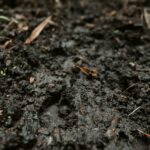Monday, september 27
Agenda
 Imprimer l’agenda
Imprimer l’agenda
| 13h30 | Invited speaker: Oskar Frankin (IIASA) |
| 14h00 | Photosynthesis and Fluorescence N, P and K use |
| 15h00 | Efficiency Post-flowering biotic and abiotic stresses impact nitrogen use efficiency and seed filling in Arabidopsis thaliana |
| 16h00 | Break (20 min) |
| 16h20 | Water use efficiency |
| 17h20 | End |

Tuesday, september 28
Agenda
 Imprimer l’agenda
Imprimer l’agenda
| 09h00 | Invited speaker : Jeremy Harbinson (University of Wageningen) Development and Growth |
| 09h30 | Convener: Catherine Rameau |
| 10h30 | Break (20 min) |
| 10h50 | Multi-scale modelling |
| 11h50 | Round table |
| 12h30 | End |




